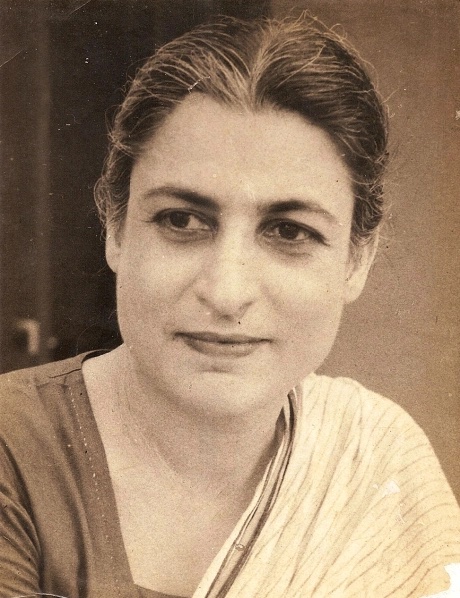Begum Qudsia Zaidi
This is a collection of articles archived for the excellence of their content. |
A brief profile
Meghna Mehra, Oct 11, 2019: Feminism in India

From: begumqudsiazaidi.wordpress.com
Begum Qudsia Zaidi was a playwright, author and a social worker. She has written numerous books for children and adults alike.
Begum Qudsia Zaidi was a playwright, author and a social worker. She has written numerous books for children and adults alike. As a theatre practitioner, she influenced many generations of actors and playwrights. Her theatre was a blend of classical and modern theatre, changing old sanskrit plays in accordance to her time was her talent.
Early Life and Education
Begum Qudsia Zaidi was born on 23rd November, 1914 in Delhi. Qudsia Zaidi’s father was a senior police officer. She couldn’t get to spend much time with her parents as they died when she was a child. She stayed with her sister Zubeida and brother-in-law Ahmed Shah Bokhari ‘Patras’, who was also an urdu writer and had a keen interest in theatre. It can be said that it was his influence which created an interest in Zaidi’s mind for theatre. She often read literature and tried to learn different languages which were used in her translation works later.
She studied at Kinnard College, Lahore and later moved to Delhi with her sister where patras joined All India Radio. She got married in 1937 to her partner Col. Bashir Hussain Zaidi. Who later became a member of Lok Sabha and Vice Chancellor of Aligarh Muslim University. The marriage was progressive for their time. She lived in Rampur till 1948 and translated many books until they shifted back to Delhi.
Career
Theatre as an industry have always been dominated by men and during independence era, it was no different. Many playwrights experimented with different plays from different languages and developed their own styles.
Qudsia’s love for theatre and writing kept on evolving over the years. She wrote, “Chaccha Chakkan ke Karnaame“, a play for children when Dr. Zakir Hussain, a prominent educationist, also President of India encouraged her to write for children. They were really close when she and her husband stayed in Rampur. His husband was a supportive person who appreciated her quest for writing and translating complex plays into simple words. In Delhi, she became close to Kamladevi Chattopadayay, India’s cultural doyen.
With so many intellectuals and artists around her, she found her inspiration. She was part of many cultural bodies. When people of her age were in freedom struggle, she ensured to develop Indian theatre. In 1954, she met Habib Tanvir which grew into mutual admiration and when he left India. He promised her that he will come back as a director to establish her theatre. Later, they established Hindustani Theatre together. Qudsia translated numerous Sanskrit and foreign plays into Urdu and other regional languages. In 1957-58 Hindustani Theatre became a professional urban theatre in Delhi. She was one of the first women to contribute to the cause of Indian theatre in a way that structured the theatre world in India.
She was also a part of Indian communist movement. Her play “Azaar ka Khwab” was one of the prominent plays on language barriers and translation. Her talent of keeping the essence of translated plays alive without losing the narrative of the plays. Her progressive ideas can be seen through her plays like “Jaan haar” which is a love story between a courtesan and a young revolutionary.
Later Life
She translated 20 plays in a span of 12 years ranging from Brecht to Shaw. She was one of the most progressive theatre personalities of her time. In 1960, at the age of 46 she died unexpectedly leaving Urdu theatre world in despair. Her prominent writings include Our Bapu, Mitti ki Gaadi (translation from sanskrit), Shakuntala (translation from sanskrit), Khalid Ki Khala among others.
She was one of the first women in theatre during independence era who contributed to the art through various means. Inspiring many artists across age groups, she was bold, confident and talented. She is celebrated after so many years of her death through her plays and books. The Hindustani Theatre mentored many talented artists like Habib Tanvir, M S Sathyu, Monica Mishra, Shyam Arora among others. Later, her daughter and theatre personality wrote script for “Garam Hawa” which created waves in the pioneers of early Indian cinema.